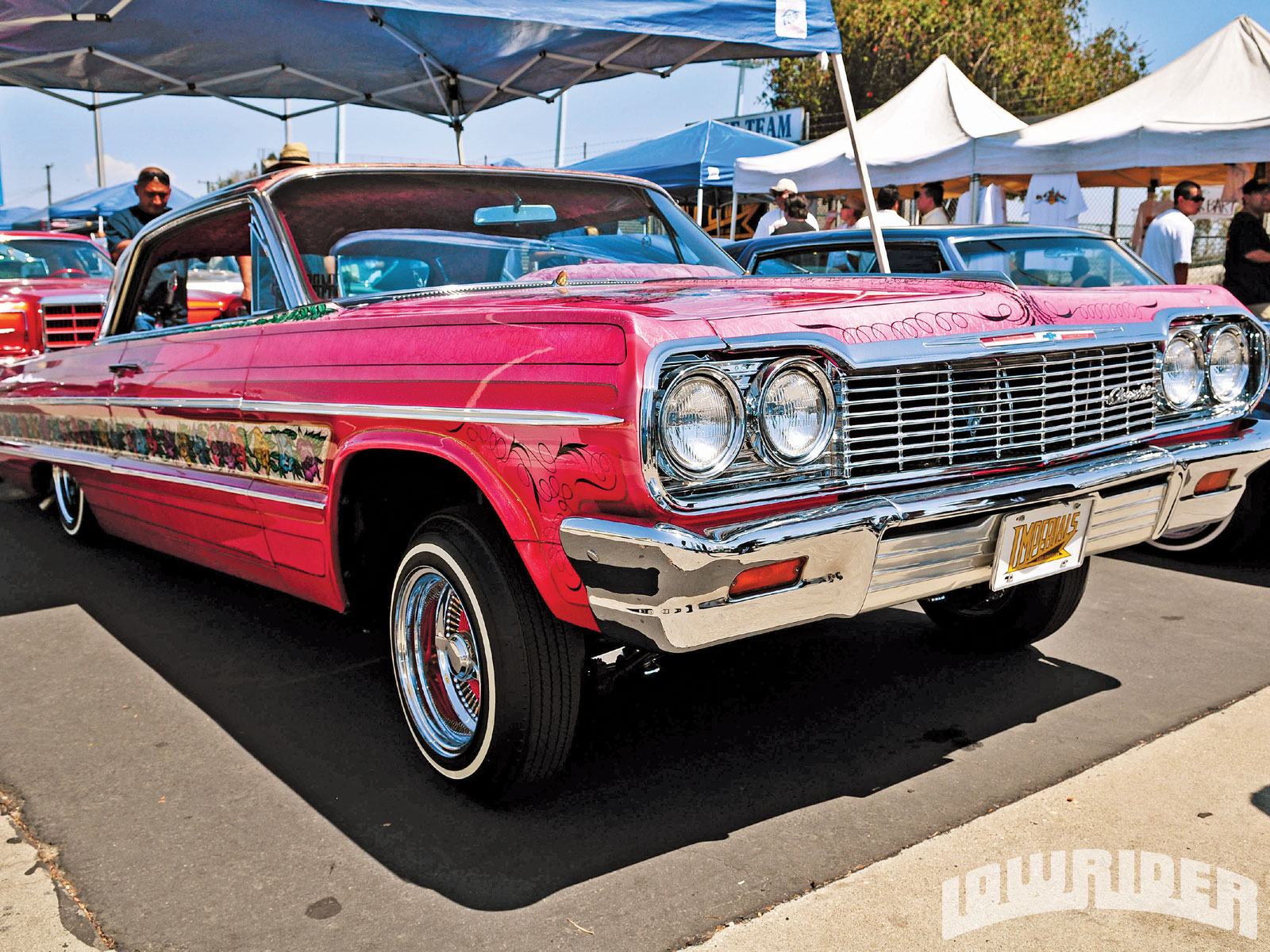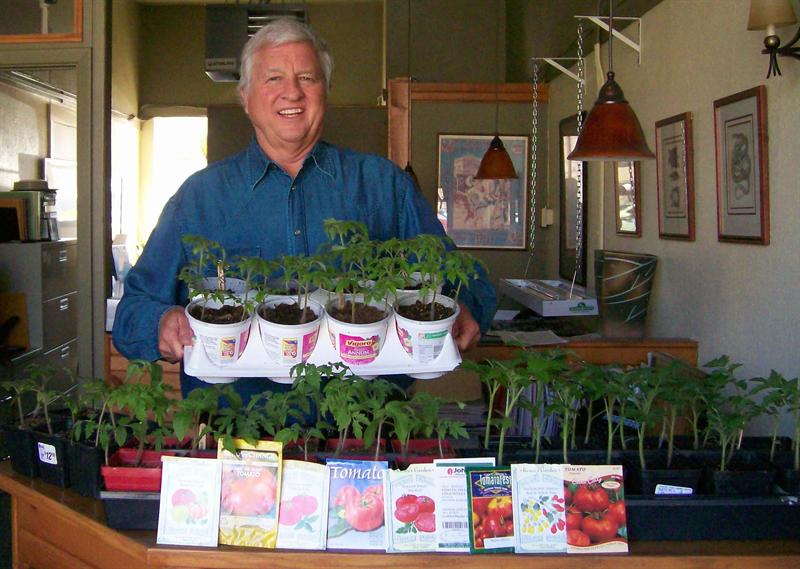
by Mark Smiley | May 26, 2015 | Travel
by Councilman Charlie Brown
For the last eight seasons, Denver City Councilman Charlie Brown has planted thousands of tomato seeds in March and nurtured the plants to distribute free to residents and city officials in early May. He grows them in his basement and office, where they eventually end up in his office windows on Exposition Avenue and are often confused with a newly legalized plant.
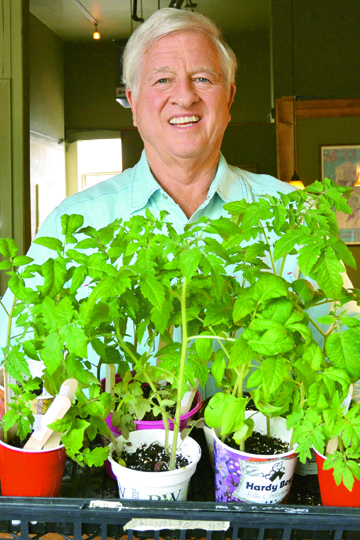 “When that happens,” Brown said, “I always remind folks that tomato plants are not a cash crop.”
“When that happens,” Brown said, “I always remind folks that tomato plants are not a cash crop.”
The second year his efforts proved so popular that constituents started calling in April wanting to know when they could pick up “their” tomato plants. The “The Tomato Plant Entitlement Program” was hatched.
This year was his biggest yet, with more than 800 plants and 15 varieties handed out. And it will be the last year to do so, since along with five other Denver council members, he is term-limited in July. He has represented 52,000 residents in south Denver for more than 14 years.
Brown calculates he has distributed some 6,000 tomato plants during the last eight years which, if urban gardeners followed his tip sheet for growing in Denver’s fickle climate, produced 20,000 pounds of America’s favorite gardening crop. And with this era ending, he wanted to share how he got started — not with politics, but with gardening.
The love affair began decades ago.
My first gardening memories can be traced back to my grandparents’ small farm five miles east of Durham, N.C. When we were about 10-years-old, my Mom would take my twin brother and me there to spend the weekend helping them with farm chores.
Saturday mornings started early. A rooster’s cock-a-doodle-doo would send us dashing off to the hen house to gather fresh brown eggs for breakfast. That was the easy start of a long day working in the heat and humidity and the sandy clay soils of North Carolina’s Piedmont region. We milked cows, fed the pigs and chickens, and tackled the dreaded hoeing and weeding.
I would do things that city folks have trouble understanding, including wringing a chicken’s neck for Sunday supper and watching it run around the barnyard with no head; and plowing long rows of crops with a large, tail-swishing beast six feet in front of me who, surprisingly, respected my commands of “whoa mule!” I loved every minute of it, especially the gardening.
The southern climate allowed for early planting and harvesting. It’s hard for Denver gardeners to fathom that by late June we were already “bringing in” potatoes, broccoli, spinach, beets, onions, field peas, squash, butter beans, string beans, green peppers and, my favorite, tomatoes. Okra, turnip greens, cantaloupe, watermelon and corn would soon follow. Most crops would be “put up” in canning jars or, later, a small Sears & Roebuck freezer.
As I look back on those days I realize just how much my grandparents taught me. My grandmother was an early naturalist, who loved birds, wildlife and gardening. “Gardening teaches you patience,” she said. She reminded us not to keep all the fish we caught from the scummy farm pond but return some for ‘another day’ long before the concept of “catch and release.” My grandfather was a hard task master. If he would catch us leaning on our hoe to catch a quick break he would yell out: “You have to hoe to the end of the row,” a work ethic that’s sometimes hard for youngsters to comprehend.
Thanks to the influence of my grandparents, I’ve planted a garden each spring for more than 40 years. It gets in your blood. When it hails in Denver everyone is concerned about their cars and roofs. But like all farmers, ranchers and urban gardeners, our concern is about, in the words of Kenny Rogers, “our crops in the field.”
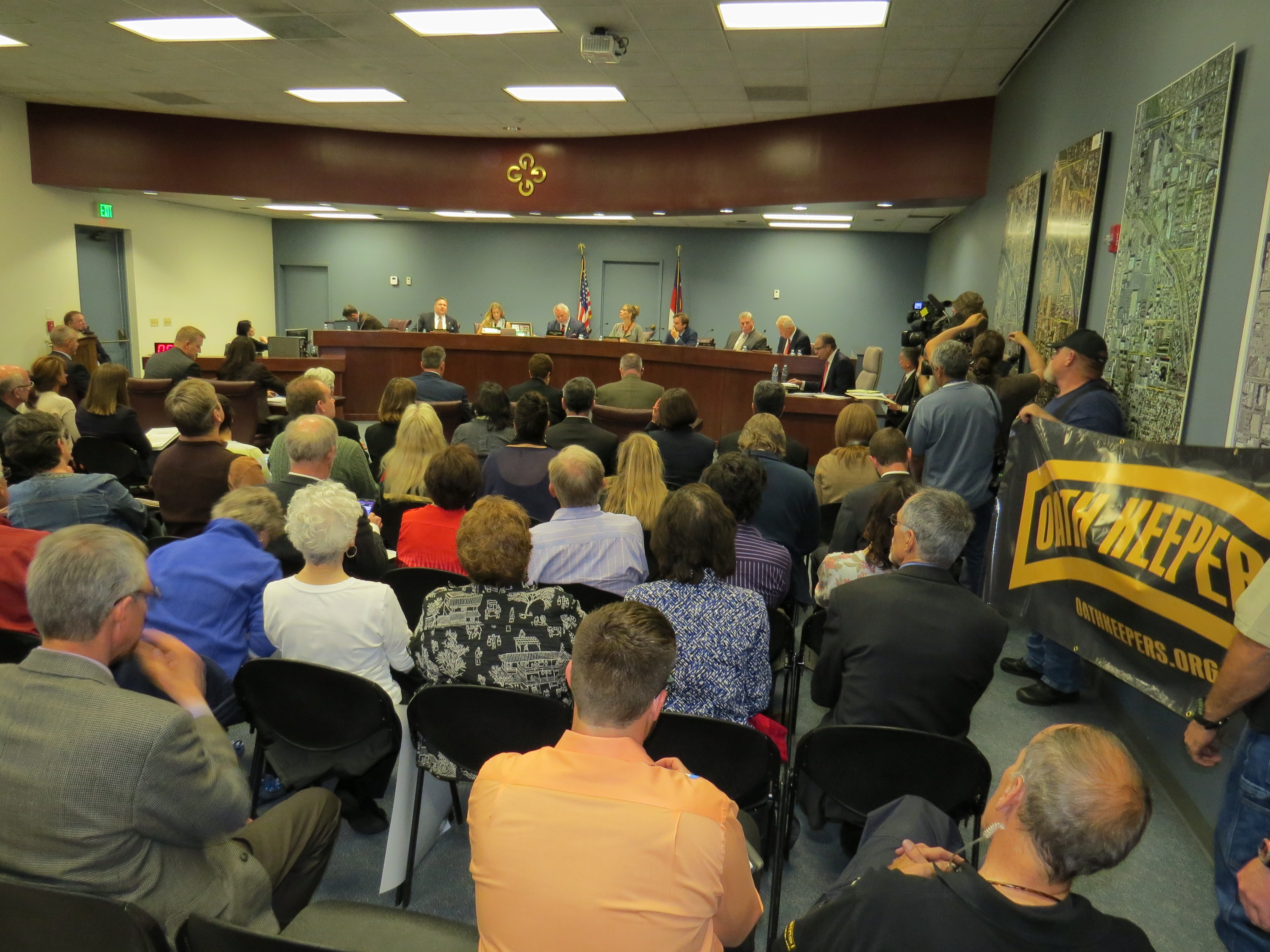
by Mark Smiley | May 22, 2015 | Main Articles
Glendale Reauthorizes Eminent Domain But With Restrictions
by Mark Smiley
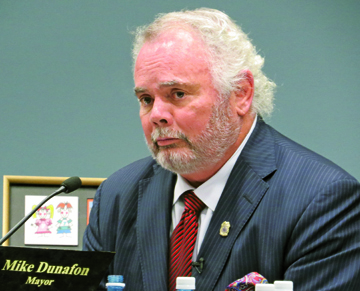
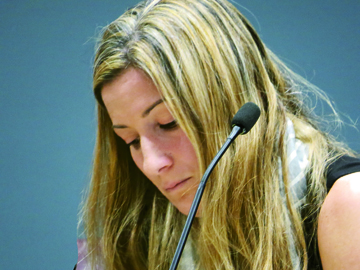
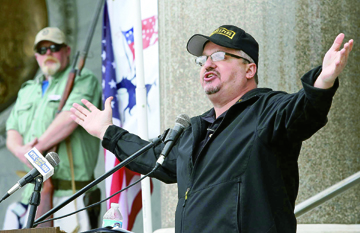


The Glendale City Council reauthorized its urban renewal authority with the power of eminent domain, but with various restrictions by unanimous vote on Tuesday, May 12, 2015. The City Council meeting was jam-packed with television cameras from every local news station lining one wall, reminding some veteran observers of council meetings in the late 1990s when meetings were known as the “Tuesday Night Fights.”
Some city officials were surprised by the vehemence and vitriol of the meeting which, in their minds, was simply reinvesting its urban renewal authority with eminent domain authority which it has previously done in 2004 and again in 2013.
Officials also expressed dismay that articles in the media wrongly indicated that property can be taken without paying the landowner full and fair compensation as determined by a Colorado court. They also noted that the notice applies to the entire 42 acre parcel of land and not a single property.
However, the wealthy and influential Kholghy family from Iran, who owns Authentic Persian and Oriental Rugs, viewed the notice of reauthorization as a precursor to condemnation of their business and the five acres it owns along Colorado Boulevard and East Virginia Avenue.
The Kholghys, as M.A.K. Investment Group, LLC, having retained two high-priced Denver law firms, sued the city’s urban renewal authority in Arapahoe County District Court, asserting abuse of governmental due process. In the complaint the law firms argued that the Kholghys rather than Wulfe & Co., a Houston, Texas developer, should have been chosen to redevelop the entire 42 acre parcel of land, notwithstanding the fact that the Kholghys do not have any experience as developers. Glendale 180, formerly known as the Riverwalk, has been years in the making and will be a dining and entertainment district along Cherry Creek. The Kholghys have also retained the non-profit Virginia-based law firm Institute for Justice who sent attorney Phil Applebaum to the meeting. “They have a right to keep what they’ve worked so hard to own,” said Applebaum.
City representatives pointed out that the Kholghys bought the land in 2006 in order to profit from the redevelopment, and they acquired the land two years after the area was declared blighted and an urban renewal authority had been set up.
For added heft and muscle, the Kholghys engaged the Oath Keepers, a paramilitary militia organization of current and former U.S. military and law enforcement members who assert that they will disobey any orders tha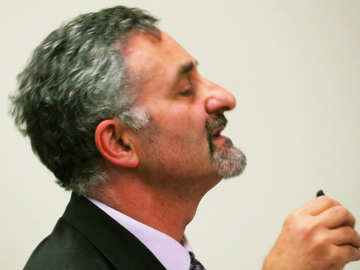 t they are given if they believe it violates the U.S. Constitution. Former presidential candidate Pat Buchanan said of the Oath Keepers that “depending on where one stands, {they] are either defenders of liberty or dangerous peddlers of paranoia.”
t they are given if they believe it violates the U.S. Constitution. Former presidential candidate Pat Buchanan said of the Oath Keepers that “depending on where one stands, {they] are either defenders of liberty or dangerous peddlers of paranoia.”
At the meeting an Oath Keeper representative emphatically noted they had been a prominent part of the Bundy Ranch standoff in Nevada and the Ferguson, Missouri, demonstrations. The Oath Keepers demonstrated outside of city hall before the meeting on behalf of the Kholghys forcing attendees to walk through their lines to get to the meeting. One agitated attendee at the meeting wondered out loud, “Is it the Constitution of the United State or that of Islamic Republic of Iran that these guys are trying to intimidate the residents of Glendale into obeying. Who will the Kholghys bring in next to threaten everyone — biker gangs? Glendale residents don’t particularly like to be pushed around and intimidated so the Kholghys can hold up the city. Is this how they think this country works?”
The Kholghys also brought scores of its customers and acquaintances to the meeting from around the metropolitan area that generally excoriated the council and Mayor Mike Dunafon. None of their supporters were from Glendale.
The Oath Keepers originally indicated that they would attempt to recall anyone who voted for the reauthorization. The only actual resident of Glendale to speak, Doug Turner, praised what the city council was trying to accomplish in the small municipality.
Jimmy O ‘Connor, the owner of the property prior to his sale to the Kholghy family in 2006, said at the meeting that the Kholghys bought it from him for $6.5 million. The family indicated to the media it has offers for the property from third parties in the $20 million range. Upon conclusion of the meeting, Mayor Dunafon said they should accept one of the offers if they thought they could get that price. Local experts anticipated that the land was likely worth approximately $12.5 million. An independent appraisal has been ordered by the city.
After several hours of comments Mayor Pro Tem Paula Bovo stated, “The reason we have everybody in the room tonight is because eminent domain is a scary thing. If we can add an extra layer of security without compromising the entire project, I would be willing to do that. … I will do everything in my power to make sure it doesn’t come down to the big threat, the big stick of eminent domain.”
Bovo suggested a compromise whereby the City Council would approve the reauthorization resolution but with restrictions on the urban renewal authority. The city would act in good faith and make a full and fair effort to come to an agreement with any landowner prior to eminent domain.
After consultation with local legal counsel, attorneys for the city and the Kholghys, and Jody Alderman of the law firm Alderman Bernstein drafted an amendment which, among other items, requires the city to enter into mediation with a landowner. The mediator is to be chosen by the landowner but the cost would be borne by the city.
The compromise appeared to be generally acceptable to the main parties involved that night. However, Nasarin Kholghy was a guest on the Fox & Friends television show the following morning and demanded the city abolish the possibility of eminent domain regarding Glendale 180.
After the meeting Mayor Dunafon stated in interviews with local television stations that the city did not want to condemn anyone and did not anticipate the city doing so. “You can’t start the process and even enter into negotiation until the authority is empowered, and by the way, it doesn’t mean the authority ever has to use condemnation and it probably never will,” said Dunafon.
Dunafon generally received high marks from some attendees for facilitating and allowing attendees who wanted to speak an opportunity to do so and for maintaining an equitable demeanor notwithstanding the highly personal nature of some remarks by Kholghy supporters.
One Glendale resident who requested anonymity for fear of retaliation from the Kholghys and their militia supporters concluded, “Ali and Saeed push Nasarin out front and like to pretend to the press that they are victims. By threatening residents with a paramilitary demonstration of force shows who they really are. They know how to work the legal system, the press and everyone else, but in the end they will do anything to anybody to get their way.”

 “When that happens,” Brown said, “I always remind folks that tomato plants are not a cash crop.”
“When that happens,” Brown said, “I always remind folks that tomato plants are not a cash crop.”


